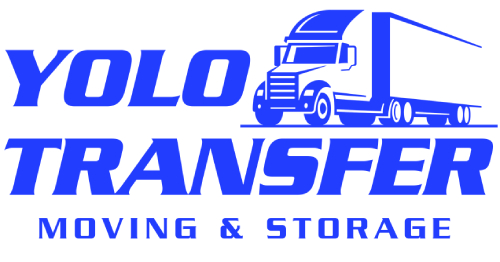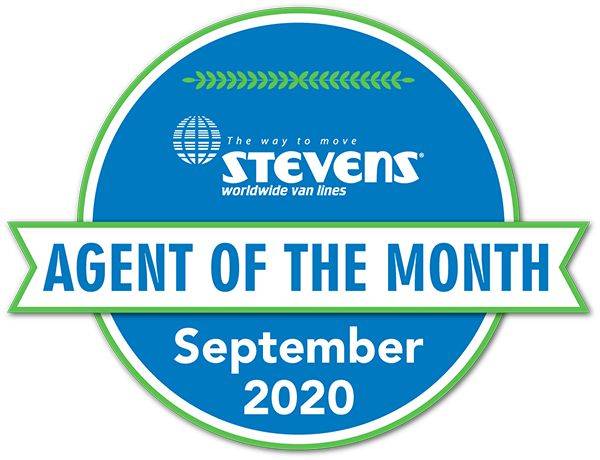7 Tips for Choosing the Best Long-Distance Moving Company (2024)
There are a lot of moving companies to choose from, which makes choosing the right moving company for you a difficult decision for any move. Selecting the right moving company for a long-distance relocation is crucial, especially since long-distance moves demand more attention than a local move. It’s essential to make an informed decision to ensure you get the most suitable mover for your needs. Wondering how to begin? Here are some key recommendations to help you choose an ideal long-distance moving company:

 While reading online reviews is incredibly easy, and there are so many, there’s no better recommendation than those from people you trust. Ask your friends and family if they have used a mover in the last few years. Discover their thoughts on that moving company, whether those thoughts are good or bad. Be open to all information provided to you by those you trust.
Getting more than a few recommendations from people you know may be difficult, as people don’t move too often. But if you can get a couple, those testimonies can be an incredibly reliable source of information.
While reading online reviews is incredibly easy, and there are so many, there’s no better recommendation than those from people you trust. Ask your friends and family if they have used a mover in the last few years. Discover their thoughts on that moving company, whether those thoughts are good or bad. Be open to all information provided to you by those you trust.
Getting more than a few recommendations from people you know may be difficult, as people don’t move too often. But if you can get a couple, those testimonies can be an incredibly reliable source of information.
 The best way for a company to have exceptional service is through the quality control of a trusted national van line. Moving companies are fully vetted and trained before becoming an interstate agent of a national van line, such as Wheaton World Wide Moving or Bekins Van Lines. Interstate agents of a van line must complete all long-distance moves through their van line, so your moving company will collaborate with hundreds of interstate agents to make your move seamless.
In addition, if something happens during your long-distance move that causes lost or damaged items, the van line will handle the claim process. Nationwide van lines like Wheaton and Bekins have valuation claim guides on their respective sites to help you through the process. You can have peace of mind that your long-distance move is in the right hands by trusting interstate agents of a national van line.
The best way for a company to have exceptional service is through the quality control of a trusted national van line. Moving companies are fully vetted and trained before becoming an interstate agent of a national van line, such as Wheaton World Wide Moving or Bekins Van Lines. Interstate agents of a van line must complete all long-distance moves through their van line, so your moving company will collaborate with hundreds of interstate agents to make your move seamless.
In addition, if something happens during your long-distance move that causes lost or damaged items, the van line will handle the claim process. Nationwide van lines like Wheaton and Bekins have valuation claim guides on their respective sites to help you through the process. You can have peace of mind that your long-distance move is in the right hands by trusting interstate agents of a national van line.
1. Verify Licenses
Long-distance moves look a lot different than local moves. Since there is a further distance to travel, there are different laws and procedures to follow. While in-state licenses are required for local moves, a USDOT license is required for long-distance and out-of-state moves. It is essential to make sure your moving company is properly licensed. This way, you can avoid all brokers and moving scams. For more information on how to avoid moving brokers and scams, check out the Federal Motor Carrier Safety Administration’s (FMCSA) Spot the Red Flags page. You can check your moving company’s licensing by looking up their USDOT license using the FMCSA License Database Lookup. Most reliable moving companies also have their licenses listed on their website, a sign of credibility. However, moving companies that are interstate agents of a van line, such as Wheaton World Wide Movers or Bekins Van Lines, can operate under their van line’s USDOT number. This means that the name of their van line will populate under their USDOT license on the FMCSA database instead of the moving company’s name. Overall, verifying your long-distance moving company’s USDOT license is essential, as companies that carry a license operate within legal and industry standards.
2. Make Sure They Are Fully-Insured
All moving companies need to have the proper insurance to protect all parties involved with the move. It is the industry standard for moving companies to obtain general liability and worker’s comp insurance policies. However, this does not mean that your moving company’s insurance automatically covers all your items. As the FMCSA website states, it is a red flag if “the mover claims all goods are covered by their insurance.” This is because your items are not covered under your mover’s insurance, which is why moving companies offer moving valuation packages. Federal law requires all licensed moving companies to offer Limited Liability Coverage (aka Released Value Protection) free of charge with every move. Under this valuation policy, movers have to compensate their customers 60 cents per pound per lost or damaged item, despite the actual value of each item. Because of this, many moving companies offer ‘Full Value Protection’ valuation plans, which protect each item’s value, at an additional charge. You can learn more about valuation plans on FMCSA’s liability page.3. Read Reviews Online
You can read up on what the moving companies have to say about themselves all you want, but the best way to understand a long-distance mover is by listening to people who have used them before. Online reviews are the easiest way to find what people say about a company. These can easily be found on third-party sites such as Google and Yelp. Ensure that a moving company has plenty of reviews and a good overall score. While these will give you insight into a moving company, especially their customer service. Here are a few things to keep in mind when looking at reviews:- RECENCY OF REVIEWS: Make sure the reviews are recent, as this indicates the business is fully operational when you read reviews.
- BE WARY OF ONLY 5-STAR REVIEWS: Be wary of companies who only have 5-star reviews, as they might not all be genuine. That red flag could mean the reviews are too good to be true. 4-star and 3-star reviews every once in a while are normal. These reviews show that people are not perfect. Sometimes, mistakes happen, and people aren’t always the happiest when mistakes happen.
- ONE STAR REVIEWS: Don’t let a few one-star reviews scare you off, especially if they are from months and months ago. According to USA Today, there are only “5% to 10% of customers who actually write reviews.” As mentioned above, people make mistakes, and typically, the type of person to leave a review had either an amazing or horrible move.
- REVIEWS ARE NOT FACTS: Remember to take everything under advisement, as you can’t always trust everything you read on the internet.
4. Ask Friends and Family About Their Moving Experiences
 While reading online reviews is incredibly easy, and there are so many, there’s no better recommendation than those from people you trust. Ask your friends and family if they have used a mover in the last few years. Discover their thoughts on that moving company, whether those thoughts are good or bad. Be open to all information provided to you by those you trust.
Getting more than a few recommendations from people you know may be difficult, as people don’t move too often. But if you can get a couple, those testimonies can be an incredibly reliable source of information.
While reading online reviews is incredibly easy, and there are so many, there’s no better recommendation than those from people you trust. Ask your friends and family if they have used a mover in the last few years. Discover their thoughts on that moving company, whether those thoughts are good or bad. Be open to all information provided to you by those you trust.
Getting more than a few recommendations from people you know may be difficult, as people don’t move too often. But if you can get a couple, those testimonies can be an incredibly reliable source of information.
5. Check Their Services
You can narrow your choice of moving companies by looking at the services offered. First, you must ensure your mover can move your belongings to your desired destination. Certain movers only offer in-state moves, while others will only complete long-distance moves to certain states. The best-case scenario is finding a mover that can complete moves anywhere in the U.S. However, since not all moving companies offer cross-country moves, double-check with your chosen moving company can move you to your desired destination before signing on with them as your mover. No matter what you may need during your move, looking for a mover that offers full-service moves is always good. The moving process is unpredictable, and you may need services you didn’t expect. Here are some of the more important offerings to keep an eye out for:- Packing Services
- Warehouse Storage
- Disassembly and Reassembly of Larger Items
- Specialty Moves – Such as Antiques Moving and Gun Safe Moving
6. Get Multiple Moving Quotes
According to MoveBuuddha.com, “the best method for negotiating with your moving company is to get multiple moving estimates from at least three reputable companies.” This will give you enough information to decide on the company that best fits your needs without overwhelming you with too many companies to choose between. A moving company should never charge you for a moving quote or estimate, and they should always provide you with a written estimate. According to the FMCSA, it is a red flag if “the mover or broker does not provide a written estimate or says they will determine the cost after loading.” Remember the difference in terminology between estimate and quote. If a company is offering a quote, that means they are setting the price that they will charge. When a company offers an estimate, they give the approximate cost of the job, which is subject to change. Be sure to get a quote through an in-home estimate or quote, where a moving company representative takes an inventory of what will be moved in person, or through a virtual visit. These virtual quotes are remote visits where a mover representative will do that same inventory over video chat. It is yet another red flag if “the mover or broker doesn’t perform an on-site inspection of your household items and gives an estimate over the telephone or online — sight unseen” (FMCSA, “Spot the Red Flags”). To avoid moving scams, never accept a moving estimate or quote over the phone from someone who hasn’t seen your space.7. Look for a National Van Line Affiliate
 The best way for a company to have exceptional service is through the quality control of a trusted national van line. Moving companies are fully vetted and trained before becoming an interstate agent of a national van line, such as Wheaton World Wide Moving or Bekins Van Lines. Interstate agents of a van line must complete all long-distance moves through their van line, so your moving company will collaborate with hundreds of interstate agents to make your move seamless.
In addition, if something happens during your long-distance move that causes lost or damaged items, the van line will handle the claim process. Nationwide van lines like Wheaton and Bekins have valuation claim guides on their respective sites to help you through the process. You can have peace of mind that your long-distance move is in the right hands by trusting interstate agents of a national van line.
The best way for a company to have exceptional service is through the quality control of a trusted national van line. Moving companies are fully vetted and trained before becoming an interstate agent of a national van line, such as Wheaton World Wide Moving or Bekins Van Lines. Interstate agents of a van line must complete all long-distance moves through their van line, so your moving company will collaborate with hundreds of interstate agents to make your move seamless.
In addition, if something happens during your long-distance move that causes lost or damaged items, the van line will handle the claim process. Nationwide van lines like Wheaton and Bekins have valuation claim guides on their respective sites to help you through the process. You can have peace of mind that your long-distance move is in the right hands by trusting interstate agents of a national van line.








